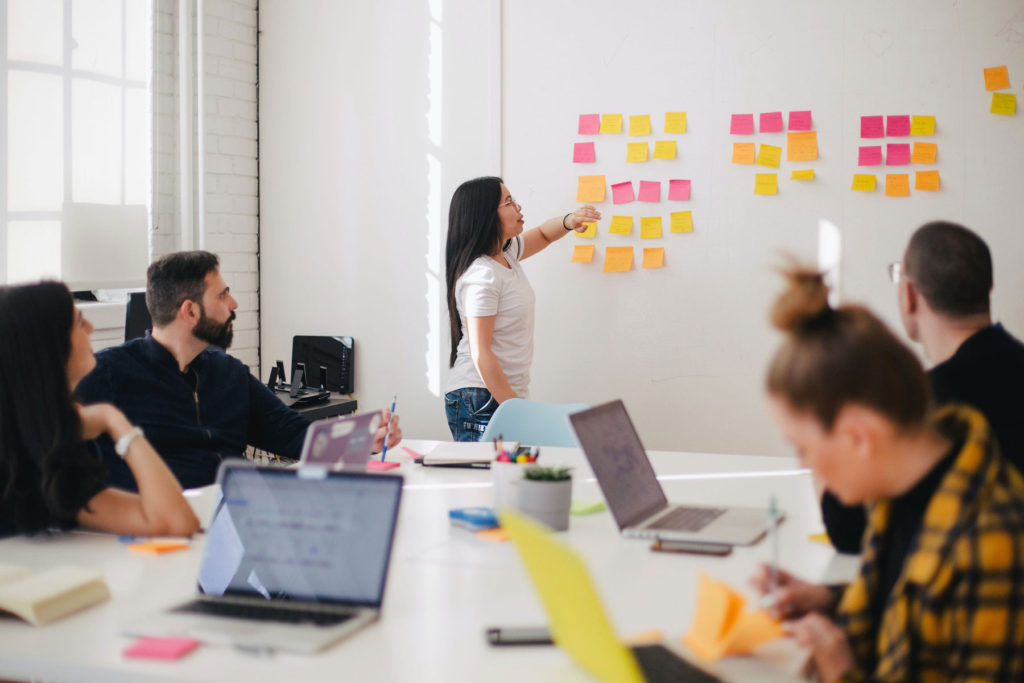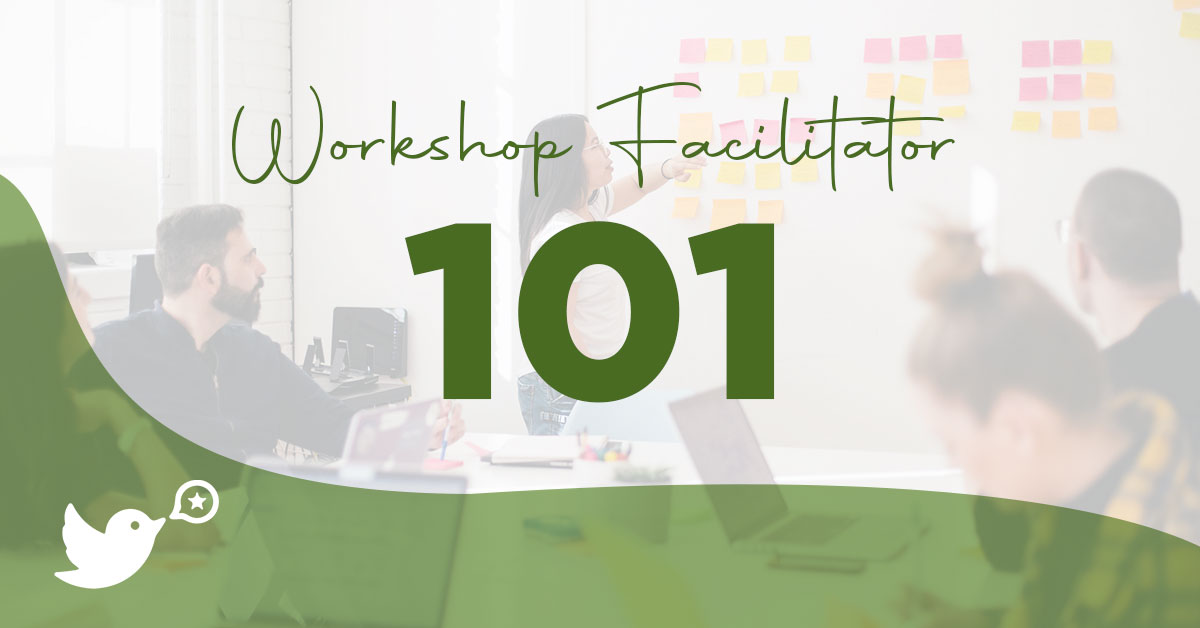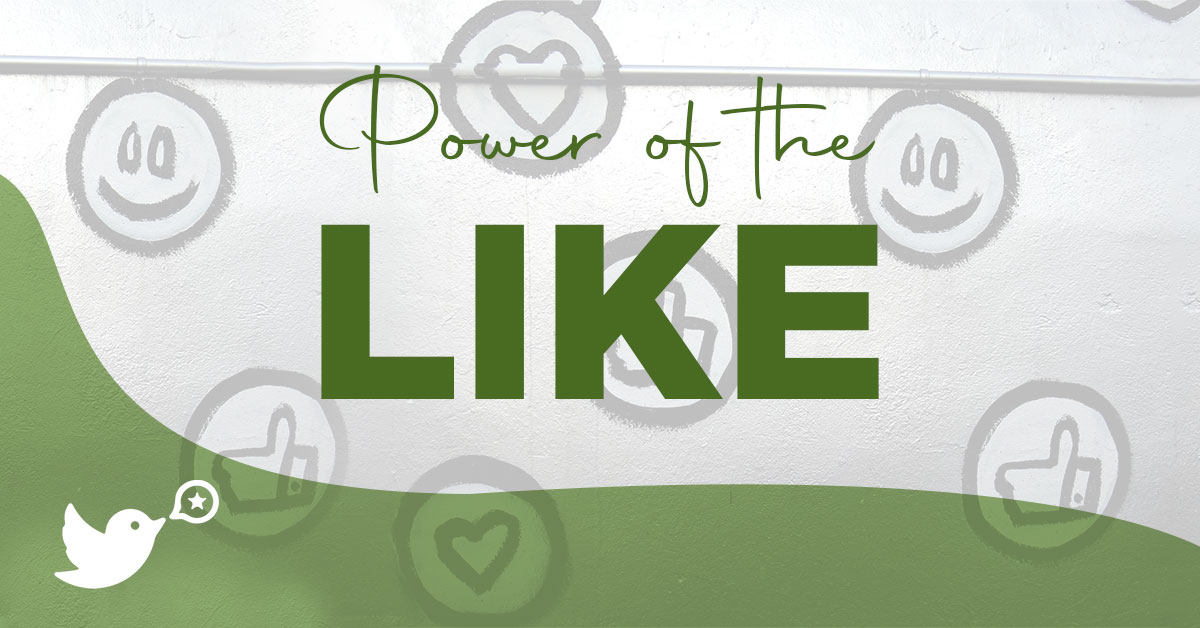As a workshop facilitator, you play a crucial role in guiding groups towards their goals and facilitating productive and collaborative discussions. Your ability to create an engaging and inclusive environment can make or break the success of a workshop. In this comprehensive guide, we will explore the key skills, principles, and techniques that will help you become a master workshop facilitator. Whether you are a seasoned professional or just starting your journey, these insights will empower you to facilitate workshops with confidence and impact.
Table of Contents
- Introduction
- Understanding the Role of a Workshop Facilitator
- The Fundamentals of Workshop Facilitation:
- Defining Workshop Facilitation
- The Goals of Workshop Facilitation
- Cultivating Essential Facilitation Skills:
- Active Listening
- Creating an Inviting Space
- Embracing Improvisation
- Authenticity and Knowledge
- Avoiding Advice-Giving
- Embracing Constructive Conflict
- The Power of Full and Equal Participation:
- Encouraging Diverse Contributions
- Establishing a Shared Language
- Fostering Inclusive Decision-Making
- Promoting Shared Responsibility
- Building Your Facilitation Toolkit:
- Essential Materials
- Core Activities
- Effective Facilitation Techniques
- Tips for Effective Workshop Facilitation:
- Preparing for a Workshop
- Setting the Stage
- Managing Group Dynamics
- Guiding Discussions and Activities
- Handling Challenges and Conflict
- Closing and Follow-Up
- Case Studies: Successful Workshop Facilitation:
- Case Study 1: Design Thinking Workshop for a Product Innovation Team
- Case Study 2: Strategic Planning Workshop for a Nonprofit Organization
- Case Study 3: Team Building Workshop for a Cross-Functional Team
- Continuous Growth and Improvement:
- Reflecting on Your Facilitation Practice
- Seeking Feedback and Learning Opportunities
- Expanding Your Facilitation Repertoire
- Conclusion

Now, let’s delve into each section and uncover the secrets to becoming a master workshop facilitator.
1. Introduction
Workshops are powerful spaces for collaboration, learning, and problem-solving. As a workshop facilitator, your role is to guide participants through this process, enabling them to tap into their collective wisdom and generate meaningful outcomes. Whether you are facilitating workshops for team building, innovation, strategic planning, or any other purpose, your ability to create a supportive and engaging environment is crucial.
In this guide, we will explore the core principles, goals, and skills that underpin effective workshop facilitation. We will also provide practical tips, case studies, and resources to help you enhance your facilitation practice. By the end, you will be equipped with a comprehensive toolkit to facilitate successful workshops and empower participants to achieve their objectives.
2. Understanding the Role of a Workshop Facilitator
Before diving into the intricacies of workshop facilitation, it is essential to understand the role you play as a facilitator. A workshop facilitator is not merely a presenter or a subject matter expert. Instead, your primary responsibility is to guide the group towards their desired outcomes by creating an inclusive and productive environment.
You are a neutral and objective observer who helps participants navigate through discussions, activities, and decision-making processes. Your role is to ensure that everyone has an equal opportunity to contribute, that mutual understanding is fostered, and that collaborative decisions are reached. As a facilitator, you are the conductor of the workshop, orchestrating the flow of ideas and conversations while remaining attentive to the needs and dynamics of the group.
3. The Fundamentals of Workshop Facilitation
Defining Workshop Facilitation
Workshop facilitation is the art of providing unobtrusive and objective guidance to a group in order to collaboratively progress towards a goal. Unlike other forms of facilitation, such as user research facilitation, workshop facilitation focuses on creating an interactive and participatory environment where participants can actively engage in discussions, activities, and problem-solving.
The key to effective workshop facilitation lies in striking a balance between structure and flexibility. While you need to plan and organize the workshop agenda, activities, and materials in advance, you also need to be adaptable and responsive to the needs and dynamics of the group. A successful workshop facilitator knows when to steer the conversation, when to encourage diverse perspectives, and when to allow for creativity and exploration.
The Goals of Workshop Facilitation
As a workshop facilitator, your goals are centered around four key principles:
- Full and Equal Participation: Your role is to create an environment where every participant feels comfortable sharing their ideas and perspectives. By promoting full and equal participation, you ensure that diverse voices are heard and that all participants have a sense of ownership and buy-in.
- Mutual Understanding: Facilitating mutual understanding involves establishing a shared language, clarifying goals and expectations, and fostering effective communication among participants. When everyone understands each other’s viewpoints and the purpose of the workshop, it becomes easier to collaborate and reach consensus.
- Inclusive and Collaborative Decision Making: The decisions made during a workshop should be inclusive, meaning that they reflect the collective input and insights of all participants. As a facilitator, your role is to guide the decision-making process, encouraging open dialogue, and ensuring that the final decisions are supported by the group.
- Shared Responsibility: Facilitating shared responsibility means empowering participants to take ownership of the workshop outcomes and follow-up actions. By clearly defining next steps and assigning responsibilities, you enable participants to continue the work initiated during the workshop and ensure that the outcomes are actionable and impactful.
By embracing these goals and principles, you will create a workshop experience that is engaging, productive, and meaningful for all participants.
4. Cultivating Essential Facilitation Skills
To excel as a workshop facilitator, you need to cultivate a set of essential skills. These skills will enable you to create a supportive, inclusive, and productive environment where participants can fully engage in the workshop process. Let’s explore these skills in more detail:
Active Listening
One of the most important skills for a workshop facilitator is active listening. Active listening involves not only hearing what participants are saying but also understanding their perspectives, emotions, and underlying needs. By actively engaging with participants’ contributions, you demonstrate respect and empathy, which fosters trust and meaningful collaboration.
To practice active listening, focus on giving your full attention to the speaker, maintaining eye contact, and using non-verbal cues to show that you are listening. Avoid interrupting or jumping to conclusions, and instead, ask clarifying questions to deepen your understanding. By truly hearing and acknowledging participants’ contributions, you create a safe and supportive space for open dialogue and idea generation.
Creating an Inviting Space
As a facilitator, it is your responsibility to create an inviting space where participants feel comfortable and empowered to contribute. This involves setting the tone, establishing ground rules, and creating an atmosphere of respect and inclusivity.
Start by introducing yourself and sharing a bit about your role as a facilitator. This helps participants understand your objective position and build trust. Next, set clear ground rules and expectations for behavior, ensuring that everyone understands the importance of active participation, respect for diverse perspectives, and confidentiality.
To create an inviting space, consider the physical environment as well. Arrange the seating in a way that promotes interaction and visibility, provide materials such as sticky notes and markers to facilitate brainstorming, and create a welcoming atmosphere through appropriate lighting, music, and refreshments.
Embracing Improvisation
While it is important to plan and prepare for a workshop in advance, it is equally crucial to embrace improvisation and adaptability. No matter how well you plan, workshops are dynamic and unpredictable, and you need to be ready to respond to unexpected challenges or opportunities that arise.
Embracing improvisation means being flexible with your agenda and activities, adjusting the pace and direction of the workshop based on the needs and dynamics of the group. It also involves thinking on your feet, being comfortable with ambiguity, and finding creative solutions to keep the workshop on track.
To cultivate improvisation skills, practice thinking quickly, exploring alternative approaches, and being open to feedback and suggestions from participants. Embrace the unexpected as an opportunity for growth and innovation, and use it to create a more engaging and meaningful workshop experience.
Authenticity and Knowledge
As a facilitator, your authenticity and knowledge are instrumental in building trust and credibility with participants. Be true to yourself and your unique facilitation style, rather than trying to emulate someone else’s approach. Authenticity allows participants to connect with you on a deeper level and creates a safe space for open and honest dialogue.
While you don’t need to be an expert in the content of the workshop, it is important to have a solid understanding of the facilitation process and techniques. Be confident in your facilitation skills and be honest about what you know and what you don’t know. If a participant asks a question outside your expertise, don’t hesitate to acknowledge it and suggest a process or activity that can help address the question collectively.
Avoiding Advice-Giving
As a facilitator, your role is to guide the workshop process and facilitate discussions, not to provide direct advice or impose your own ideas. Avoid the temptation to offer solutions or make decisions on behalf of the group. Instead, create a space where participants can explore different perspectives, generate their own ideas, and collectively make decisions.
When participants seek your input, focus on facilitating their own thought processes rather than giving them direct answers. Ask open-ended questions to encourage critical thinking, prompt reflection, and help participants connect their ideas. By avoiding advice-giving, you empower participants to take ownership of the workshop outcomes and develop their problem-solving skills.
Embracing Constructive Conflict
Conflict, when approached constructively, can be a catalyst for growth, innovation, and stronger collaboration. As a facilitator, it is important to embrace and manage conflict in a way that promotes understanding, respect, and productive outcomes.
When conflict arises during a workshop, encourage participants to express their differing viewpoints and actively listen to each other. Create a safe space for constructive dialogue, where participants can share their perspectives without fear of judgment or reprisal. Use facilitation techniques such as balancing (inviting contrary opinions) and linking (connecting tangential comments to the topic at hand) to navigate through conflict and steer the conversation towards productive solutions.
By embracing constructive conflict, you create an environment where diverse opinions are valued, and participants can collectively explore new ideas and perspectives.

5. The Power of Full and Equal Participation
At the heart of effective workshop facilitation is the principle of full and equal participation. By creating opportunities for all participants to contribute, you tap into the collective intelligence and creativity of the group. Let’s explore how you can promote full and equal participation in your workshops:
Encouraging Diverse Contributions
As a facilitator, it is your responsibility to ensure that every participant has an opportunity to contribute their ideas and perspectives. Encourage participants to share their thoughts, even if they are introverted or less inclined to speak up. Use icebreakers, warm-up activities, and small group discussions to create a safe and supportive environment where participants feel comfortable sharing their ideas.
To encourage diverse contributions, be mindful of power dynamics and dominant voices within the group. Actively seek input from participants who may be less assertive or marginalized. Use techniques such as round-robin discussions, where each participant has an equal chance to speak, and encourage active listening and respect for diverse perspectives.
Establishing a Shared Language
Effective communication is crucial for mutual understanding and collaboration. As a facilitator, you play a key role in establishing a shared language and ensuring that participants understand each other’s ideas and viewpoints.
To establish a shared language, provide clear explanations of key concepts and terms, and encourage participants to seek clarification when needed. Use visual aids, such as diagrams, charts, or metaphors, to convey complex ideas in a more accessible way. Encourage participants to use active listening techniques, such as paraphrasing or summarizing, to ensure that they understand each other’s contributions accurately.
Fostering Inclusive Decision-Making
Inclusive decision-making is essential for creating a sense of ownership and buy-in among participants. As a facilitator, you need to guide the decision-making process in a way that values every participant’s input and ensures that decisions are reached collaboratively.
To foster inclusive decision-making, provide clear guidelines and criteria for decision-making, and involve participants in the process from the beginning. Use techniques such as dot voting or prioritization exercises to gather input and identify shared preferences. Encourage participants to openly discuss their viewpoints and actively listen to each other’s perspectives. By creating a space where everyone’s input is valued, you enable the group to make informed decisions that reflect the collective wisdom of the participants.
Promoting Shared Responsibility
Shared responsibility is a key outcome of successful workshops. As a facilitator, your role is to empower participants to take ownership of the workshop outcomes and follow-up actions.
To promote shared responsibility, clearly define next steps and assign responsibilities during the workshop. Encourage participants to commit to specific actions and establish accountability mechanisms. Provide resources and support to help participants turn workshop outcomes into actionable plans. By fostering a culture of shared responsibility, you ensure that the impact of the workshop extends beyond the workshop itself and drives real change.
6. Building Your Facilitation Toolkit
A facilitation toolkit is a collection of materials, activities, and techniques that you can draw upon to design and facilitate engaging and impactful workshops. Let’s explore the essential components of a facilitation toolkit:
Essential Materials
Certain materials are indispensable for workshop facilitation. These materials help create artifacts, capture group memory, and facilitate interactive activities. Some essential materials for your facilitation toolkit include:
- Sticky notes: These versatile tools are perfect for brainstorming, organizing ideas, and capturing individual and group contributions.
- Flip chart or whiteboard: These provide a visual platform for displaying information, capturing key points, and facilitating group discussions.
- Markers: Colorful markers allow you to emphasize important ideas, create visual hierarchies, and make information more engaging and accessible.
- Voting dots: These small adhesive dots enable participants to vote on ideas, prioritize options, or indicate preferences in a visual and collaborative manner.
- Index cards: Index cards are useful for individual and group activities, such as writing down ideas, creating action plans, or conducting feedback sessions.
By having these materials readily available, you can facilitate a wide range of activities and ensure that participants are actively engaged in the workshop process.
Core Activities
While there are countless workshop activities to choose from, many of them can be categorized into a few core activities. These core activities form the foundation of your facilitation toolkit and can be combined, mixed, and remixed to create customized workshop exercises. Some core activities include:
- Icebreakers and warm-up activities: These activities help participants get to know each other, build rapport, and create a positive and energized atmosphere.
- Brainstorming and ideation exercises: These activities encourage participants to generate a large quantity of ideas, free from judgment or evaluation. Techniques such as mind mapping, brainwriting, or the six thinking hats can be used to stimulate creativity and divergent thinking.
- Group discussions and debates: These activities foster open dialogue, encourage active listening, and enable participants to engage in constructive conversations around specific topics or challenges.
- Prioritization and decision-making exercises: These activities help participants evaluate options, identify priorities, and reach consensus. Techniques such as dot voting, pairwise comparison, or decision matrices can be used to facilitate this process.
- Action planning and reflection exercises: These activities enable participants to define next steps, create action plans, and reflect on their learnings and insights from the workshop. Techniques such as action mapping, retrospective exercises, or visualization exercises can be used to facilitate these activities.
By mastering these core activities and adapting them to suit the specific objectives of your workshop, you will be able to design engaging and impactful workshop experiences for participants.
Effective Facilitation Techniques
Facilitation techniques are the various tactics and approaches you can employ to guide discussions, intervene when necessary, and maneuver conversations with or between participants. These techniques primarily involve verbal communication and can greatly enhance the effectiveness of your facilitation practice. Some effective facilitation techniques include:
- Intentional silence: Introducing intentional periods of silence can prompt participants to speak up, share their thoughts, or fill the void with valuable contributions.
- Balancing: Balancing involves inviting participants to provide contrary opinions or alternative perspectives. This technique ensures that diverse viewpoints are considered and encourages critical thinking and exploration of ideas.
- Linking: Linking involves connecting tangential or unrelated participant comments back to the topic at hand. By making these connections, you can steer the conversation towards the intended focus and ensure that valuable contributions are not overlooked.
- Paraphrasing and summarizing: Paraphrasing and summarizing participants’ contributions help ensure that their ideas are accurately understood and acknowledged. These techniques also promote active listening and create opportunities for clarification and further exploration.
- Probing questions: Probing questions are open-ended questions that encourage participants to delve deeper into a topic or elaborate on their ideas. These questions stimulate reflection, critical thinking, and the generation of new insights.
By incorporating these facilitation techniques into your practice, you can enhance the quality of discussions, foster active engagement, and guide participants towards meaningful outcomes.
7. Tips for Effective Workshop Facilitation
Facilitating a workshop involves careful preparation, skillful execution, and the ability to adapt to changing dynamics. Here are some practical tips to help you facilitate workshops effectively:
Preparing for a Workshop
- Clearly define the workshop objectives, desired outcomes, and target audience. This will guide your planning and help you design relevant activities and discussions.
- Conduct thorough research on the topic of the workshop to ensure you have a solid understanding of the subject matter. This will help you answer questions, provide context, and facilitate meaningful discussions.
- Prepare a detailed agenda, including timing for each activity, breaks, and transitions. This will help you stay on track and ensure that you cover all the necessary content within the allocated time.
- Familiarize yourself with the workshop materials and ensure that all necessary materials, such as sticky notes, markers, and handouts, are readily available.
Setting the Stage
- Begin the workshop by introducing yourself and sharing your role as a facilitator. This helps establish credibility and builds rapport with participants.
- Create an inclusive and welcoming atmosphere by setting ground rules that promote active participation, respect for diverse perspectives, and confidentiality.
- Clearly communicate the workshop objectives, agenda, and expected outcomes to participants. This ensures that everyone is on the same page and understands the purpose of the workshop.
- Conduct icebreaker activities or warm-up exercises to help participants get to know each other, build rapport, and create a positive and energized atmosphere.
Managing Group Dynamics
- Be mindful of power dynamics within the group and ensure that all participants feel comfortable and empowered to contribute. Actively seek input from less assertive or marginalized participants.
- Encourage active listening and respect for diverse perspectives. Use techniques such as paraphrasing or summarizing to ensure that participants understand each other’s contributions accurately.
- Manage time effectively to ensure that discussions and activities stay on track. Be prepared to adapt the agenda if necessary to accommodate the needs and dynamics of the group.
- Foster a supportive and collaborative environment by encouraging participants to build on each other’s ideas, ask questions, and provide constructive feedback.
Guiding Discussions and Activities
- Use a variety of facilitation techniques, such as open-ended questions, brainstorming, or small group discussions, to stimulate engagement and critical thinking.
- Ensure that all participants have an opportunity to contribute by using techniques such as round-robin discussions or pair and share activities.
- Provide clear instructions for activities and discussions, ensuring that participants understand the objectives, guidelines, and expected outcomes.
- Be prepared to intervene if discussions become unproductive or if conflicts arise. Use techniques such as active listening, paraphrasing, or linking to navigate through challenges and steer the conversation towards constructive solutions.
Handling Challenges and Conflict
- Remain calm and composed in the face of challenges or conflicts. Act as a neutral observer and facilitate a respectful and open dialogue to address the issues at hand.
- Encourage participants to express their differing viewpoints and actively listen to each other. Use techniques such as balancing or linking to connect diverse perspectives and find common ground.
- If tensions escalate, take a break or introduce an energizer activity to diffuse the situation and create a more positive atmosphere.
- Be adaptable and ready to adjust the agenda or activities if necessary to address challenges or conflicts effectively.
Closing and Follow-Up
- Provide a clear summary of the workshop outcomes, decisions, and next steps to ensure that participants have a shared understanding of the results.
- Allow time for participants to reflect on their learnings and insights from the workshop. Conduct a closing activity or reflection exercise to facilitate this process.
- Collect feedback from participants to assess the effectiveness of the workshop and identify areas for improvement. This feedback will help you refine your facilitation skills and enhance future workshops.
- Follow up with participants after the workshop by sharing relevant resources, action plans, or additional support. This demonstrates your commitment to their ongoing success and reinforces the impact of the workshop.
By following these tips, you can navigate potential challenges, manage group dynamics, and facilitate workshops that are engaging, productive, and memorable.

8. Case Studies: Successful Workshop Facilitation
To illustrate the principles and techniques discussed so far, let’s explore three case studies of successful workshop facilitation in different contexts:
Case Study 1: Design Thinking Workshop for a Product Innovation Team
In this case study, a workshop facilitator is tasked with guiding a product innovation team through a design thinking process to generate new ideas and solutions. The workshop aims to foster collaboration, creativity, and user-centered thinking.
The facilitator begins by establishing clear workshop objectives and creating an inviting space for participants. Icebreaker activities and warm-up exercises are used to build rapport and energize the team. The facilitator introduces the design thinking process, explains the key principles, and sets ground rules for active participation.
Throughout the workshop, the facilitator encourages full and equal participation by using techniques such as brainstorming, ideation sessions, and group discussions. Visual tools, such as sticky notes and whiteboards, are used to capture ideas and facilitate collaboration. The facilitator actively listens to participants, asks probing questions, and fosters an environment where diverse perspectives are valued.
As the workshop progresses, the facilitator guides the team through the stages of design thinking, including empathy, ideation, prototyping, and testing. The facilitator ensures that decisions are made collaboratively, with input from all team members, and that action plans are created to implement the most promising ideas.
At the end of the workshop, the facilitator conducts a reflection exercise to capture learnings and insights. The team leaves with a sense of shared responsibility and a clear plan for next steps, supported by the facilitator’s follow-up resources and support.
Case Study 2: Strategic Planning Workshop for a Nonprofit Organization
In this case study, a facilitator is facilitating a strategic planning workshop for a nonprofit organization. The workshop aims to align the organization’s goals, objectives, and actions for the upcoming year and ensure that all team members have a shared understanding and commitment.
The facilitator begins by creating an inviting space and setting ground rules for respectful and inclusive discussions. The workshop agenda is carefully planned, with activities that encourage full and equal participation. The facilitator uses techniques such as round-robin discussions, dot voting, and small group activities to gather input, prioritize objectives, and explore different perspectives.
Throughout the workshop, the facilitator ensures that all team members have an opportunity to contribute their ideas and insights. Active listening and paraphrasing techniques are used to confirm understanding and encourage deeper exploration of ideas. The facilitator guides the team through discussions on mission, vision, and strategic goals, ensuring that decisions are made collaboratively and reflect the collective wisdom of the group.
At the end of the workshop, the facilitator facilitates a reflection exercise to capture key takeaways and action points. The team leaves with a clear roadmap for the upcoming year and a sense of shared responsibility for its successful implementation.
Case Study 3: Team Building Workshop for a Cross-Functional Team
In this case study, a facilitator is leading a team building workshop for a cross-functional team. The workshop aims to improve communication, collaboration, and trust among team members.
The facilitator begins by creating an inclusive and supportive environment, where all team members feel comfortable sharing their perspectives. Icebreaker activities and team-building exercises are used to break down barriers and foster a positive and energized atmosphere.
Throughout the workshop, the facilitator uses activities and discussions to encourage full and equal participation. Techniques such as role-playing, problem-solving simulations, and group discussions are employed to promote active engagement and build trust among team members.
The facilitator actively listens to participants’ contributions, encourages open and honest dialogue, and manages conflicts constructively. Techniques such as balancing and linking are used to navigate through challenges and create opportunities for shared understanding.
At the end of the workshop, the facilitator conducts a closing activity to reflect on the team’s progress and identify action steps for continued growth. The team leaves the workshop with improved communication skills, a stronger sense of camaraderie, and a commitment to ongoing collaboration.
By examining these case studies, we can see how effective workshop facilitation techniques and principles can be applied in different contexts to achieve specific goals. Adapt these strategies to suit your own workshops and empower participants to reach their full potential.
9. Continuous Growth and Improvement
Becoming an exceptional workshop facilitator is an ongoing journey of learning and growth. To continuously improve your facilitation practice, consider the following strategies:
Reflecting on Your Facilitation Practice
Regularly reflect on your facilitation practice to identify areas for improvement and opportunities for growth. Review each workshop you facilitate, assessing what went well and what could be enhanced. Take note of facilitation techniques that worked effectively and those that could be refined.
Consider keeping a facilitation journal to document your reflections, insights, and lessons learned from each workshop. This journal can serve as a valuable resource for future reference and provide a space for self-assessment and development.
Seeking Feedback and Learning Opportunities
Seek feedback from participants, colleagues, or mentors to gain different perspectives on your facilitation practice. Ask for specific feedback on your strengths, areas for improvement, and suggestions for enhancing your facilitation skills.
Attend workshops, conferences, or seminars on facilitation to learn from experienced facilitators and explore new techniques and approaches. Engage in networking opportunities to connect with other facilitators, share experiences, and exchange best practices.
Expanding Your Facilitation Repertoire
Continuously expand your facilitation repertoire by exploring new activities, techniques, and approaches. Experiment with different facilitation styles and adapt them to suit your unique personality and the needs of the group.
Stay informed about industry trends, research, and emerging facilitation methodologies. Read books, articles, and blogs on facilitation to deepen your understanding and discover new insights.
By actively seeking growth opportunities and embracing a growth mindset, you can continually enhance your facilitation skills and deliver exceptional workshop experiences.
10. Conclusion
Becoming a master workshop facilitator requires a combination of knowledge, skills, and experience. By understanding the fundamentals of workshop facilitation, cultivating essential skills, promoting full and equal participation, building a facilitation toolkit, and continuously growing and improving, you can create engaging, inclusive, and impactful workshop experiences.
Remember, effective workshop facilitation is an art that requires practice, adaptability, and a deep understanding of the needs and dynamics of each unique group. Embrace the challenges, celebrate the successes, and be open to learning from every workshop you facilitate. With dedication and passion, you can become a master workshop facilitator who empowers participants, fosters collaboration, and drives meaningful change.



